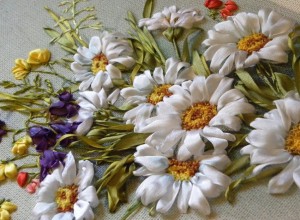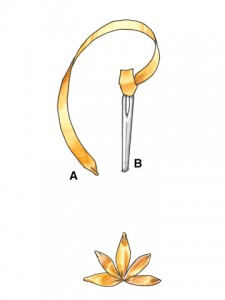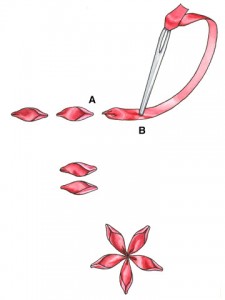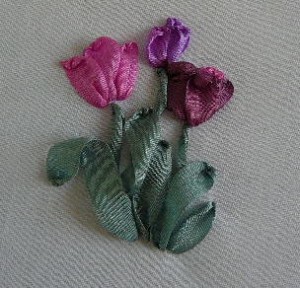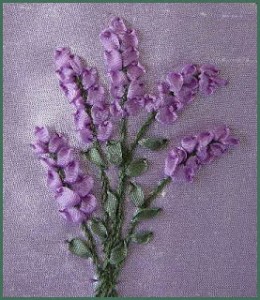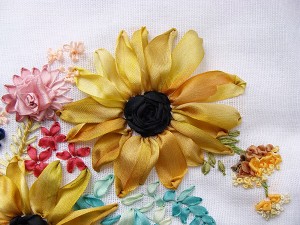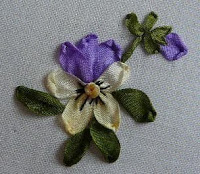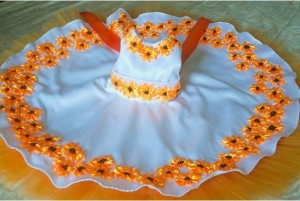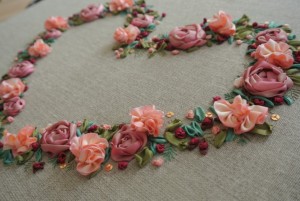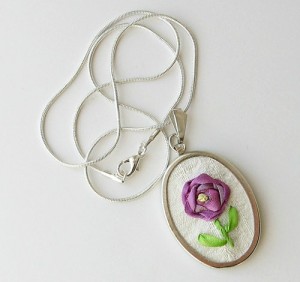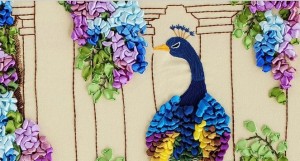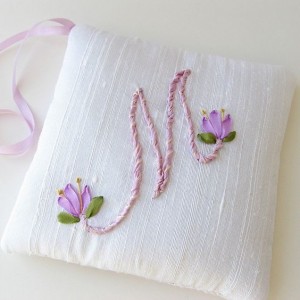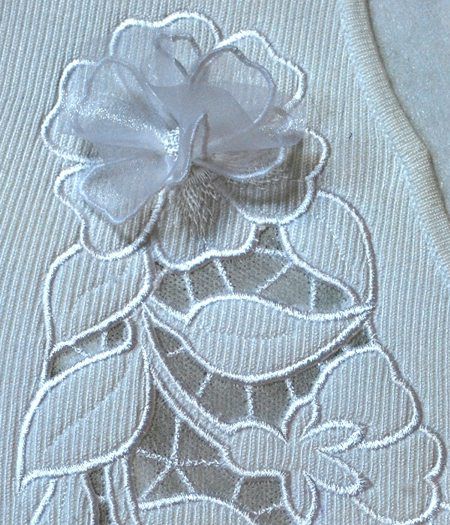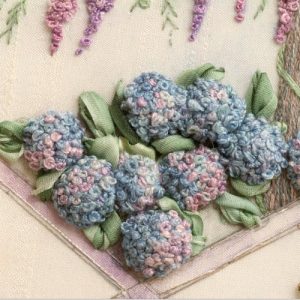Silk Ribbon Embroidery
Table of Contents
Ribbon embroidery, usually done with soft silk ribbons, adds a beautifully textured dimension to your embroidered fabric. It looks classy and has an old-world charm associated with it. Flowers done with ribbon embroidery look stunning on dresses, purses and pillow covers.
Ways to Do Ribbon Embroidery
Supplies
You should use a chenille needle for ribbon embroidery. Though silk works best, you can also choose satin ribbons for your hand embroidery. Select ribbon widths according to your pattern. In general, a 4mm silk ribbon fills a detailed embroidery pattern quite well. Ensure that the ribbon is needle-locked into the eye to prevent it from slipping. Trimming its end at an angle of 45-degree assists in threading.
Choose a tight fabric with an even-weave. Linen, dupioni silk, velvet, denim, cotton brocade, moiré are ideal. The fabric should be secured in an embroidery hoop.
Step-by-Step Tutorials for Different Methods
Ribbon embroidery can be done in a wide variety of stitches, with the instructions for a couple of basic ones given here:
Straight Stitch
- Bring the needle up at A (picture below) and pull it through.
- Insert it down at B and pull through.
- Repeat it to make the different petals of a flower.
Ribbon Stitch
- Bring the needle up at A (picture below). Pull it through.
- Insert it down at B. Note that B is a point on the ribbon itself; close to Pull it through gently. Since the ribbon will curl into B, don’t pull tightly, or the effect will be lost.
If you want to vary the curl, shift the point B to the left or right of the ribbon’s width to angle the curl. Increasing or decreasing the distance between A and B allows you to make different sized petals.
Another idea which works well with flowers is to take the needle up and put it down through a nearby point on the fabric, leaving behind a small loop of ribbon. This forms a single petal. Repeat for other petals. Now lay the loops flat on the fabric by pinning their tops with beads.
You can also try ribbon embroidery with simple embroidery stitches like lazy daisy, stem, blanket, and French knot. You may use the stitches individually or in combination with the others. For machine ribbon embroidery you need to refer guides and manuals specific to your model.
Ribbon Embroidery Patterns and Ideas
You can draw a lot of inspiration for your designs from ribbon embroidery books. We have enlisted a few patterns here.
Make a lovely flower garden or a vase full of tulips, hydrangea, lilies, sunflowers and poinsettia with ribbon embroidery. Grasses and leaves complete the design.
How to Make a Ribbon Embroidery Rose: Video
Having learnt the above variations in the embroidery, you can now use it to make neck designs in your handmade skirts and frocks, or to embellish cushion covers, greeting cards, wall hangings, bed sheets, and even make jewelry.
Give a beautiful 3D effect with overlapping ribbons as you make Christmas trees. The plumes of an embroidered peacock look textured on being done up with ribbons. Similarly, experiment with various animal art to make adorable motifs. Vegetables and egg patterns look great on tablecloths.
Give shape to cute monograms on baby clothes, shirts and handbags by simply sketching alphabets on fabric and performing straight stitch over them. You can decorate the letters with ribbon stitch blossoms. Stitching sceneries on quilts look picturesque just like paintings.
After knowing the technique, you are all set for your new ribbon embroidery project. Gather your supplies and breathe life into your fabric with kaleidoscopic silk ribbons.
Related Articles
Join Our Mailing List
Sign up to get the latest updates, along with fresh patterns and tutorials, right to your inbox

